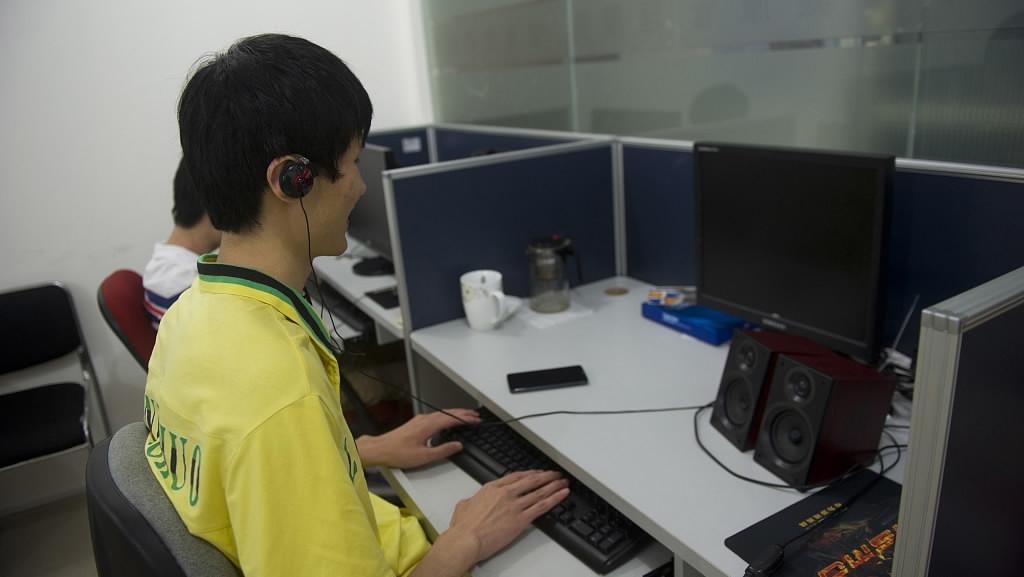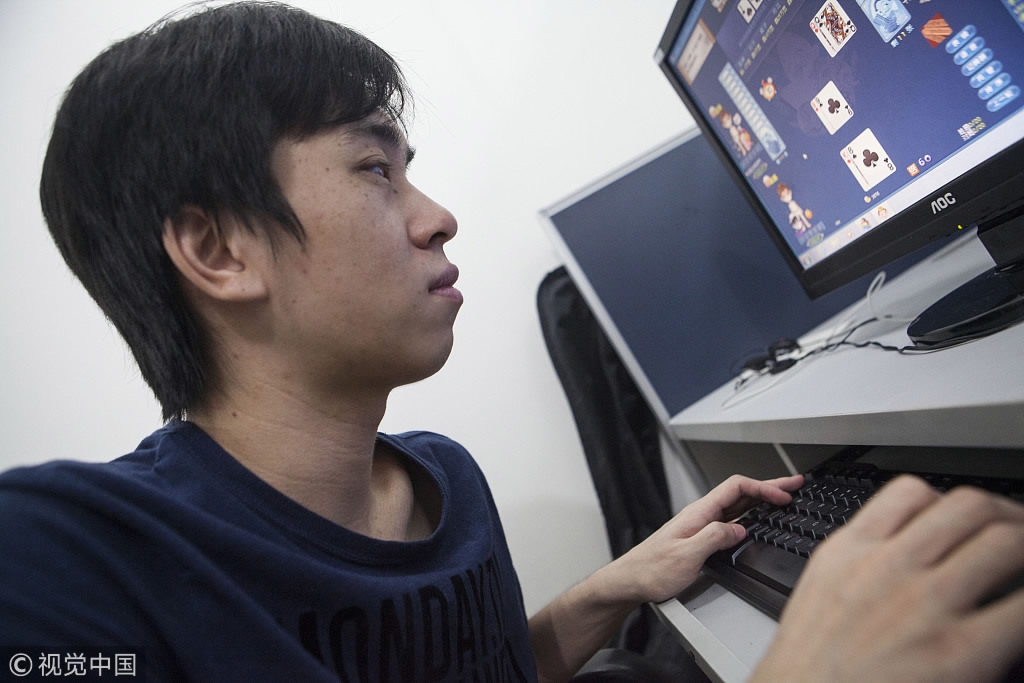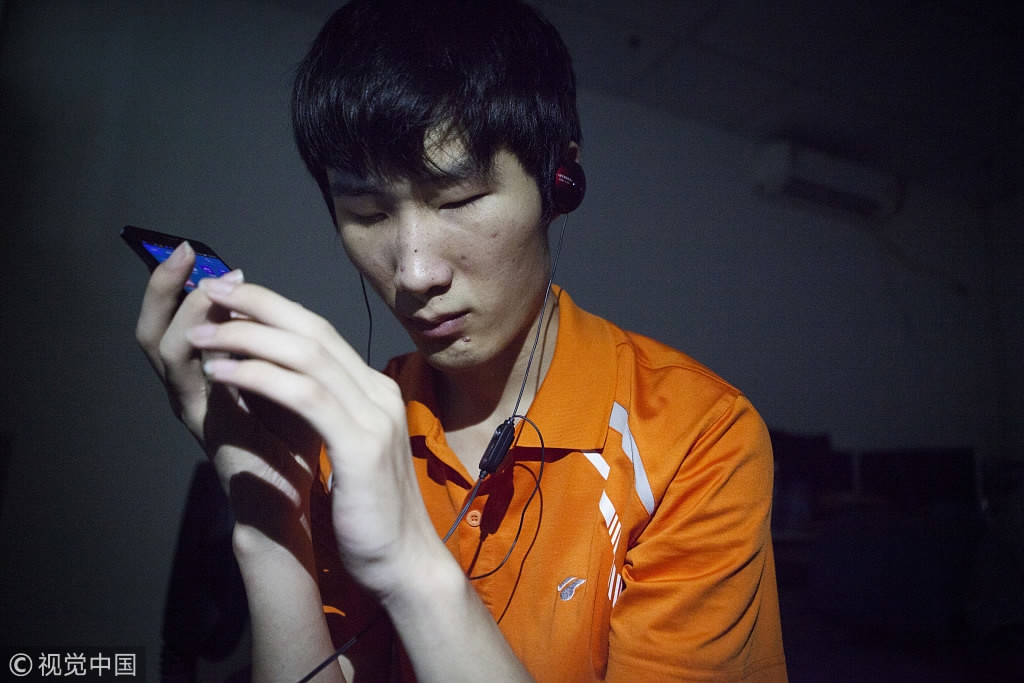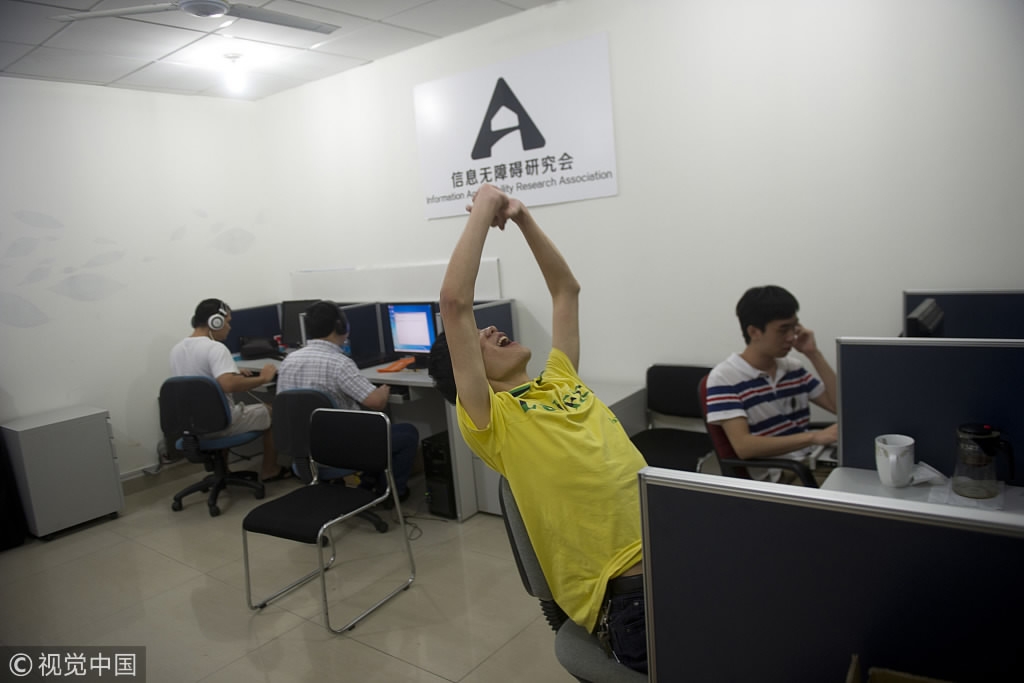
China
21:15, 04-Jan-2018
Blind programmers are making the Internet accessible to everyone
CGTN

Sitting in front of a computer with his headphones on and his fingers tapping on the keyboard, Cai Yongbin looks just like any other programmer in China. The only difference is that his computer screen is completely dark. Cai cannot see.
Cai is one of the seven visually impaired computer programmers at the Information Accessibility Research Association in Shenzhen, south China’s Guangdong Province. The institution aims to make the Internet equally accessible to different groups of users in China, including the blind, the deaf, and the elderly.
In a report released by Tencent Research Institute in 2016, the visually impaired population in China had reached 13 million. They make up just a small fraction of the 200 million people with difficulty accessing the Internet. In addition, nearly 90% of the visually impaired interviewees are not satisfied with the accessibility of China’s Internet products.

Cai Yongbin playing computer games by listening to the sound / VCG photo
Cai Yongbin playing computer games by listening to the sound / VCG photo
Since he was admitted into the institution in 2014, Cai and his colleagues have helped to test computer software, websites, and phone apps to find faults in their accessibility. In the past three years, the group has helped optimize hundreds of products from China’s major Internet companies, including WeChat and Tmall.
Wang Mengqi, Cai’s colleague, who is also visually impaired, helped make cab hailing easier for the blind. In 2017, Wang discovered that screen-reading apps are unable to read the departure time in Didi’s app, which obstructed the visually impaired users from scheduling a ride. Wang and his team worked out a solution and presented it to Didi to solve the problem.

Wang Mengqi testing the accessibility function of a phone / VCG photo
Wang Mengqi testing the accessibility function of a phone / VCG photo
“Compared with other computer engineers, we know better about the needs and habits of the visually impaired,” said Wang.
However, even for these programmers, retrieving information online can be a headache. Cai said that when they are learning to code, they mostly rely on text materials that are dull and hard to understand. They have to give up on video tutorials because vital information is omitted to them.
"In Western countries, information accessibility has become a standard for Internet companies,” said Liu Biao, another visually impaired programmer at the Information Accessibility Research Association. “China’s companies are not familiar with this concept and have very few experts in this field.”

Office of the Information Accessibility Research Association / VCG photo
Office of the Information Accessibility Research Association / VCG photo
Chinese President Xi Jinping said in November 2017 that disabled people are equal members of the human family. He added that extra care and attention should be paid to disabled people worldwide, and China will further promote the welfare of people with disabilities.
Cai said he will keep working and make Chinese Internet products more accessible to people with disabilities.
“We will be marginalizing groups of people if we don’t enforce information accessibility,” said Cai. “I hope one day, Internet products can be equally accessible to everyone.”

SITEMAP
Copyright © 2018 CGTN. Beijing ICP prepared NO.16065310-3
Copyright © 2018 CGTN. Beijing ICP prepared NO.16065310-3